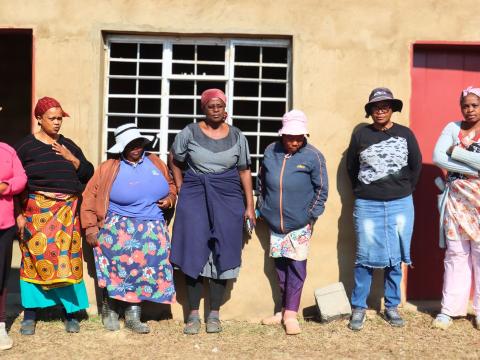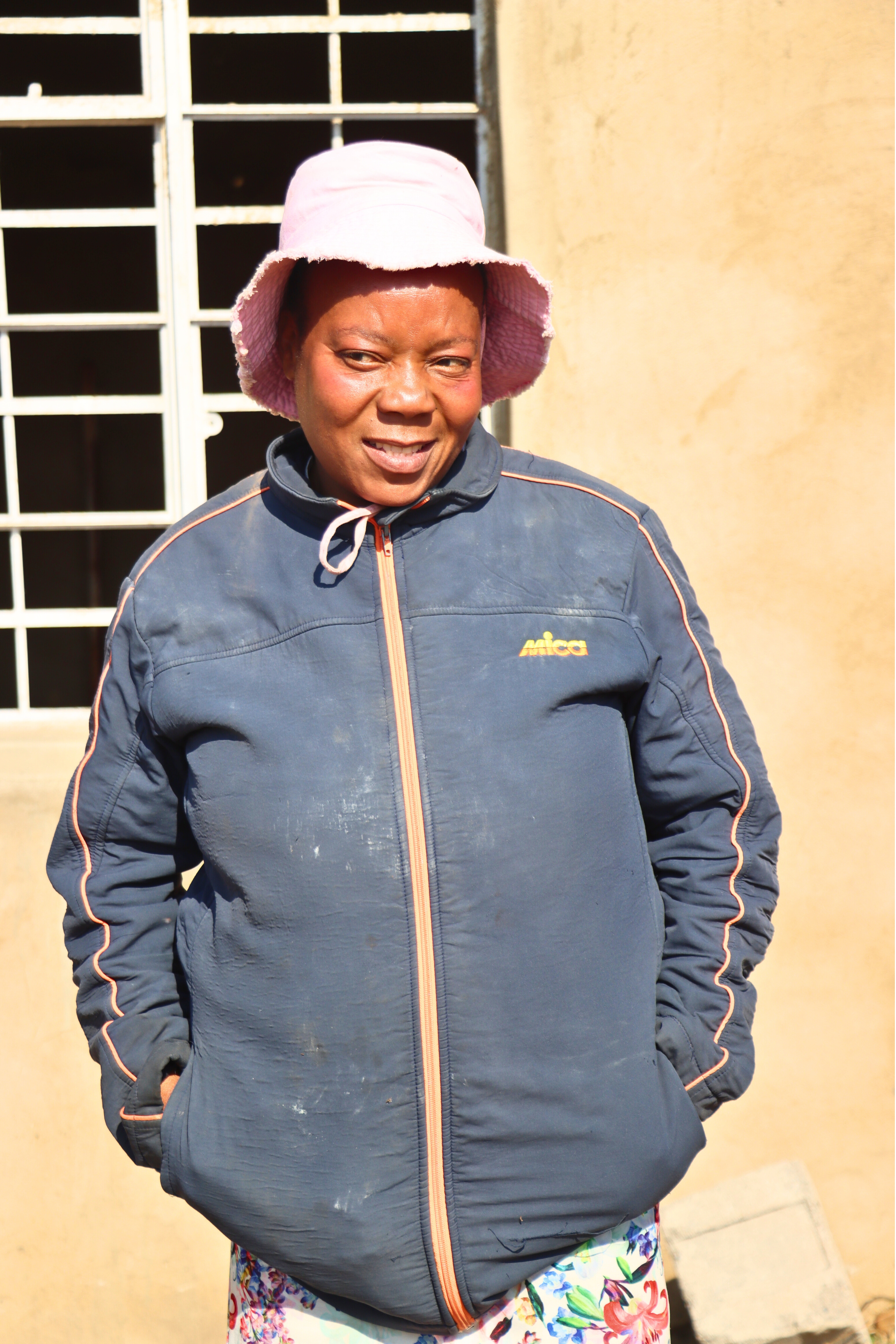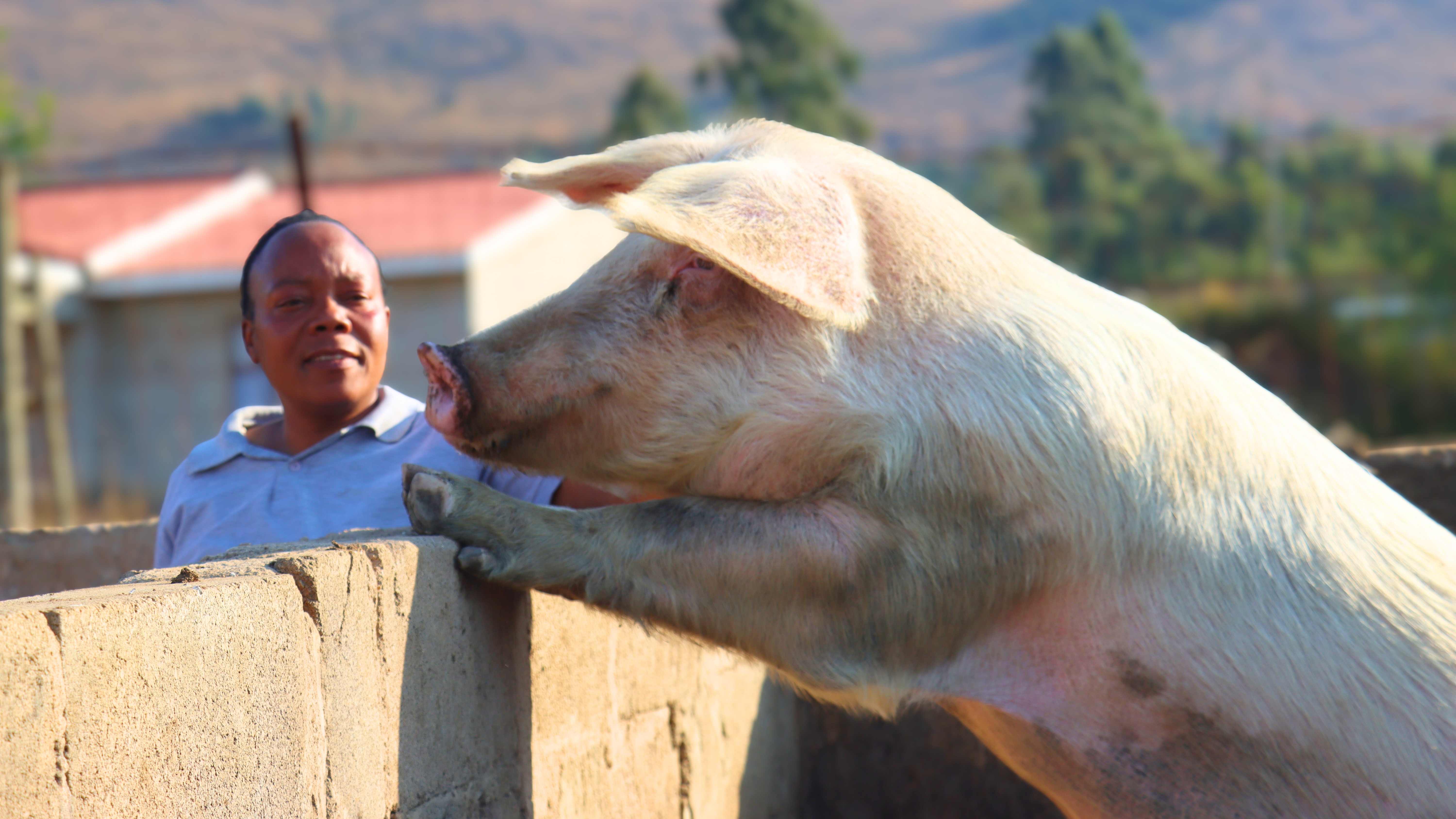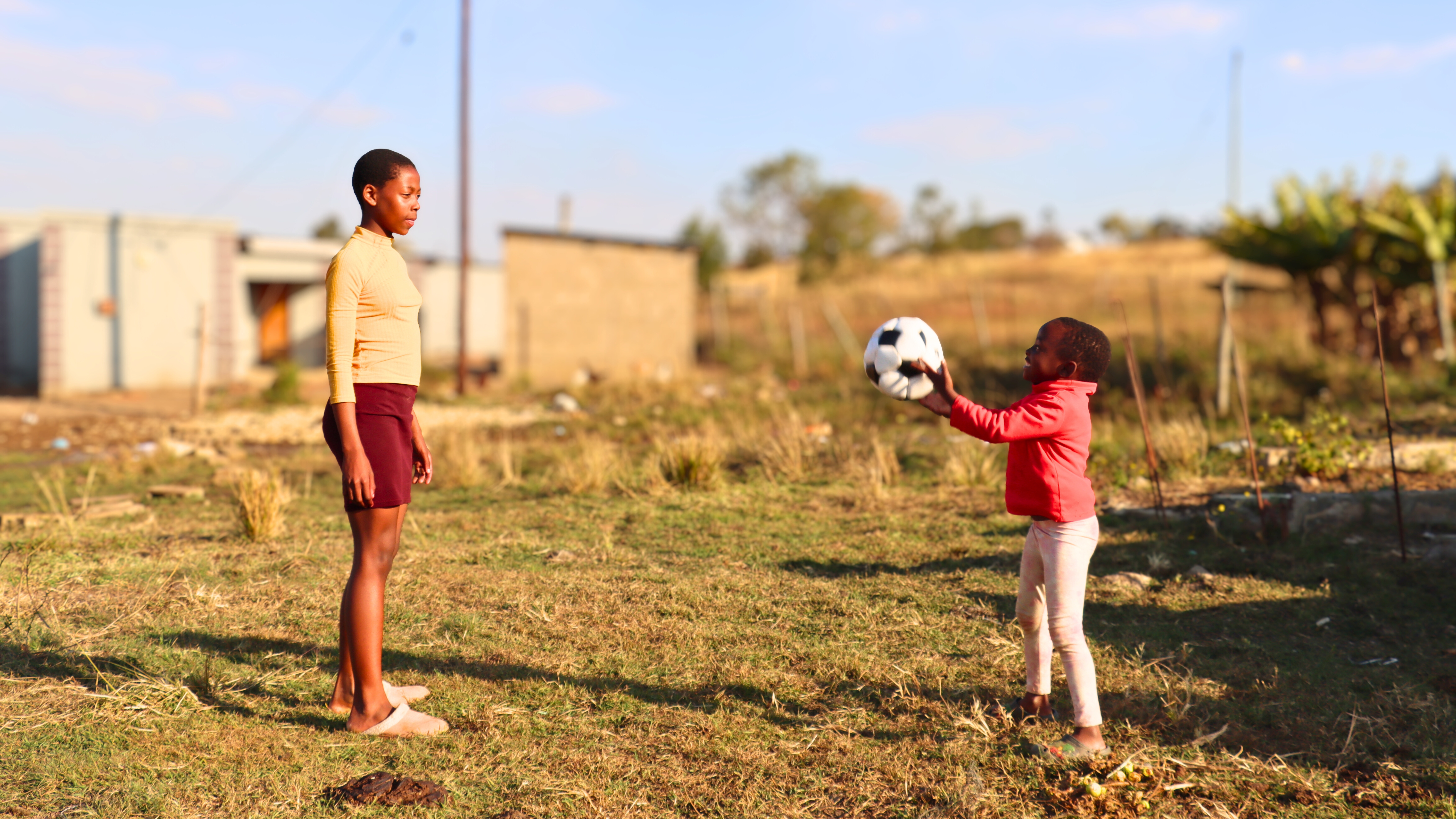Nothando Defies All Odds to Become Chairperson of Cooperative She Once Couldn’t Afford to Join

When Nothando Magagula first heard about Mahamba Piggery, a women’s group being formed in her community in 2015, she was interested but hesitant. The joining fee was just E20, yet she didn’t have it.
“I couldn’t even afford that small amount,” Nothando recalls.

That touched the hearts of the women around her. One of the founding members, recognising Nothando’s determination, gave her a pig to help her get started. At the time, Nothando’s eldest son had just finished high school. He found work as a janitor in a shop in Nhlangano and used his first earnings to buy her a bag of feed.
“My son worked around the shops in Nhlangano after finishing high school. He would occasionally buy a bag of feed for my pig.”
“My son worked around the shops in Nhlangano after finishing high school. He would occasionally buy a bag of feed for my pig,” Nothando says.
After joining Mahamba Piggery, she was also able to join a savings and lending group capacitated by World Vision and start saving and borrowing money to buy more feed. Today, Nothando is no longer the woman who couldn’t afford the joining fee. She is the Chairperson of Mahamba Piggery, a thriving cooperative of women who rear and sell pigs to large retailers, including Pick n Pay. With the income she earns, she is able to provide for her four children, putting food on the table, paying school fees, and even supporting their dreams.

Her daughter, Hlelweyinkhosi, a Grade 7 learner, beams with pride when she speaks about her mother.
“My mother takes care of us through her pig business,” she says. “She even paid for my school trip recently. We never go hungry.”
Nothando’s journey is far from over. With her eyes set on the future, she dreams of owning her own butchery, a step that would not only grow her income, but also allow her to employ others and support more families in her community.

“In the future, I would like to have my own butchery so that I can earn more,” she says with a smile.
Nothando is testament to the fact that when women are empowered, families thrive. Together with her colleagues at Mahamba Piggery, they are determined to transform their lives. Through the Livelihoods Programme, World Vision Eswatini empowers caregivers like Nothando to become self-reliant and resilient. When caregivers are equipped to earn a living, children benefit through improved nutrition, access to education, and a better quality of life. This aligns with World Vision’s ENOUGH Campaign to End Child Hunger and Malnutrition, which was launched in October 2024 in Eswatini.